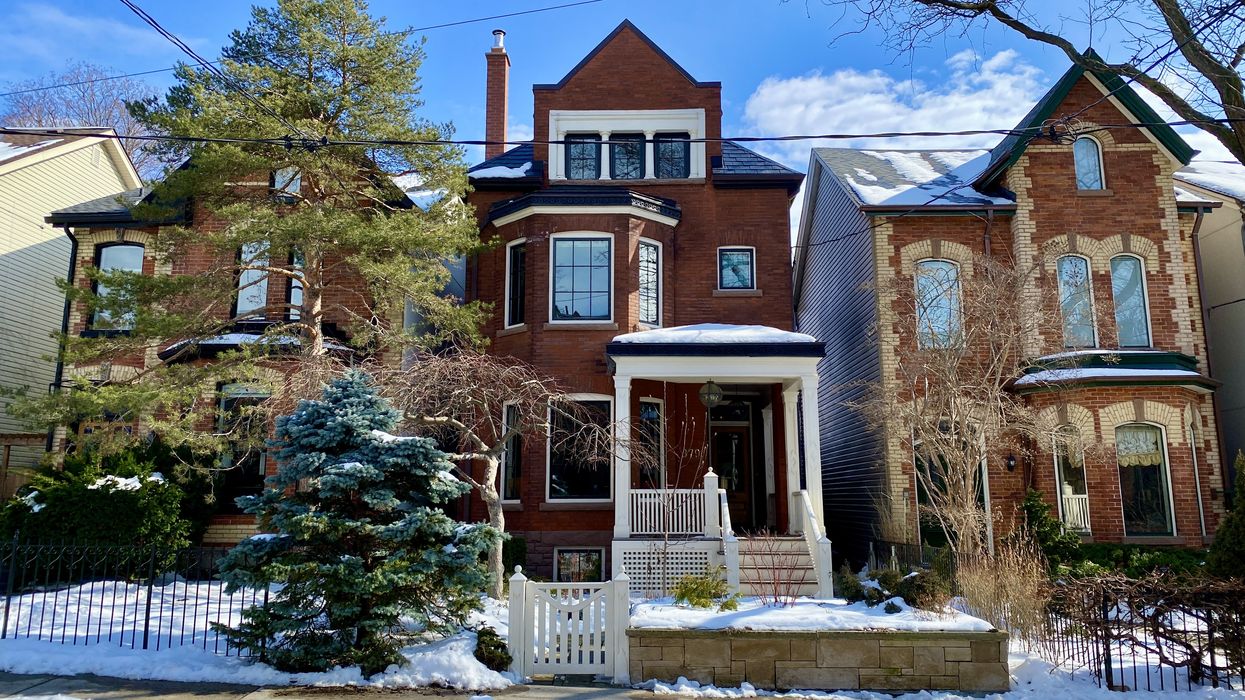This article was submitted by Brad Bradford, City Councillor for Ward 19, Beaches–East York.
It’s never been more unaffordable to live in Toronto than it is today. The cost of everything has gone up: groceries, gas, and your rent or your mortgage. The last thing Torontonians need right now is a historic property tax hike, but that’s exactly what Mayor Chow is proposing.
Through the many challenges our city has faced over the decades, successive mayors from across the ideological spectrum have understood the gravity of the decisions made when putting together the city’s budget. They have understood that these decisions have real dollar impacts on the diverse individuals and families who call Toronto home.
The 2024 budget tabled at City Hall last week includes a 10.5% property tax increase. If approved, it would represent the single largest tax increase in Toronto’s post-amalgamation history. This is a burden that middle-class families, renters, and small businesses can’t afford, and that’s why I cannot support it.
The average cost of a new house in December 2023 was $1.06M. At that assessment value, a 10.5% property tax hike would mean an extra $486 in property taxes next year. However, if you include the rate increases on water usage and garbage collection, you could be looking at more than $500 in additional costs for you and your family.
Renters will also feel the financial squeeze when landlords pass along the increased costs to their tenants. You can expect to see more above guideline rent increases (AGIs) in 2024, as extraordinary increases to municipal taxes is one of the grounds under which landlords can increase a tenant’s rent above what would otherwise be permitted in a given year. That means the Mayor’s tax hike will be passed straight through to renters.
But the fight for affordability goes beyond the immediate impacts to households. We cannot afford to jeopardize the long-term economic health and competitiveness of our city, or throw a wrench in our efforts to rapidly increase the supply of housing.

Already, small businesses across Toronto are sounding the alarm as they confront a looming deadline to repay government loans issued during the pandemic. At a time when businesses are still struggling to get themselves back in the black, higher property taxes will only lead to more vacant storefronts on our main streets.
The proposed property tax hike will also impact our ability to deliver more housing supply for Torontonians, as market and non-profit builders alike must factor property taxes into their real estate pro formas. If the math doesn’t work, housing projects don’t move forward. Therefore, we can expect to see fewer shovels in the ground on new housing this year.
Where we are today was not an inevitability if there was a sharper focus on finding savings. At $17B, the proposed operating budget this year is nearly a billion dollars more than last year’s – an increase almost as large as the entire police budget. That alone is cause for concern.
In September, I moved a motion to have a third-party consultant lead a Core Services Review to go line-by-line through the budget and find any places where the City could save money or deliver services differently. With more than a decade since the last review, and given the significant downloading of services and responsibilities during the global pandemic, now would certainly be an appropriate time to bring this back. Unfortunately, the Mayor and her allies voted against my motion and – as a result – the 2024 budget is coming forward without the benefit of this information.
Mayor Chow claims that the City has identified about $600 million in savings, but it’s unfortunately too good to be true. Every year, each city division comes forward with their budget requests. If they ask for $200 million extra and only receive $150 million, that gets counted as $50 million in savings – even as their budget goes up. That’s like calling it a diet when you eat three slices of cake instead of the whole thing. This approach erodes public trust in tax dollars being responsibly managed at City Hall, and Torontonians shouldn’t fall for this “magic math.”
During the spring campaign, Mayor Chow promised that property tax increases would be “modest”, and pointed to her significant experience in shaping budgets. While the Mayor is certainly good at spending money, there does not appear to have been any real effort to find savings.
Budgets are about setting priorities and making tough choices. It’s about finding ways to make peoples’ lives easier – not harder – and keeping in mind the real impacts that the decisions we make at City Hall can have on those that call Toronto home.
As the budget discussions continue, I will be fighting hard to bring down Mayor Chow’s proposed 10.5% property tax hike to a number closer to what Torontonians can afford. The future success and sustainability of our city depends on it.
- The Canadian Cities With The Highest And Lowest Property Tax Rates ›
- Toronto Budget Proposes 10.5% Property Tax Hike For Residential Properties ›
- Canadian Cities Raising Taxes Shouldn't Be A Surprise ›
- Toronto Mayor Brings Proposed Property Tax Bump Down To 9.5% ›
- Toronto Passes 9.5% Tax Hike For Residential Properties ›
- “Political And Petty”: Bradford Cut From Toronto Planning And Housing ›





















